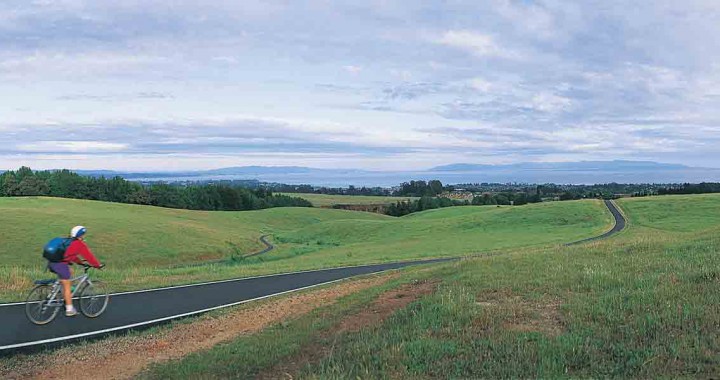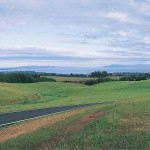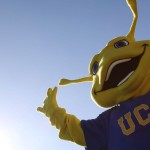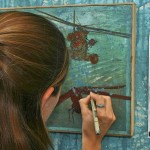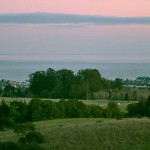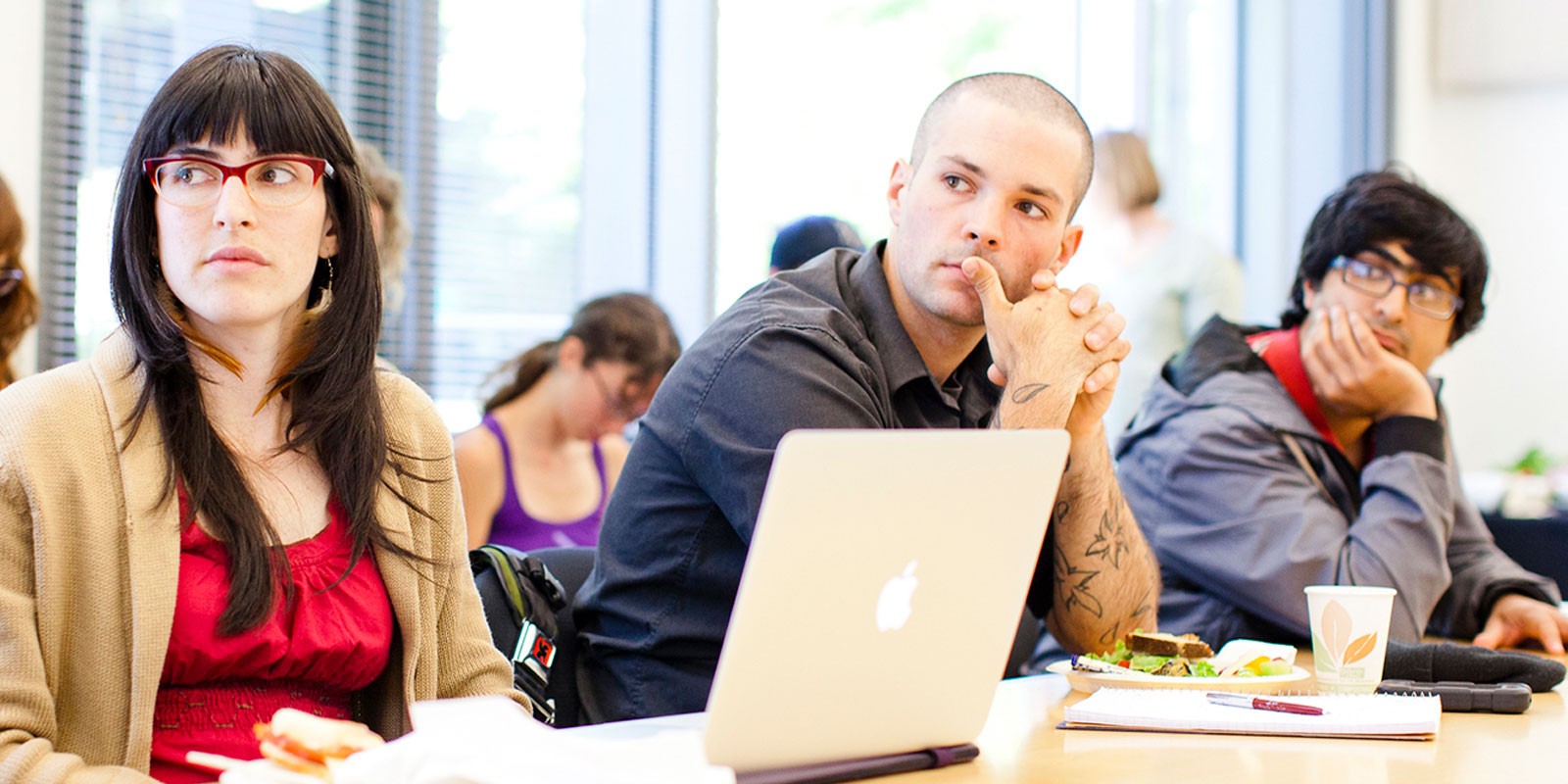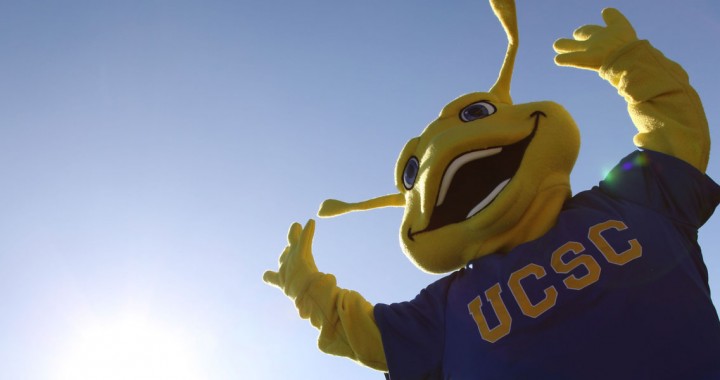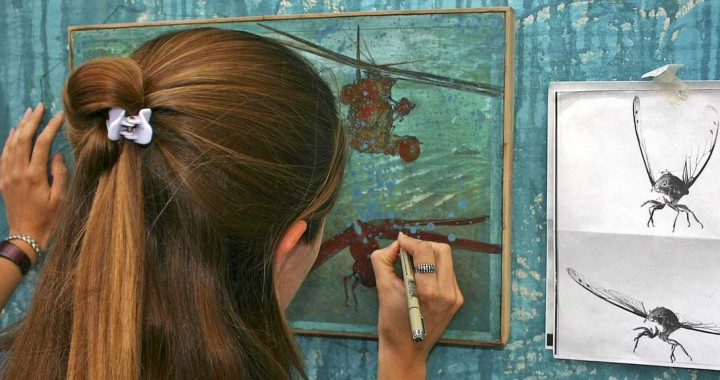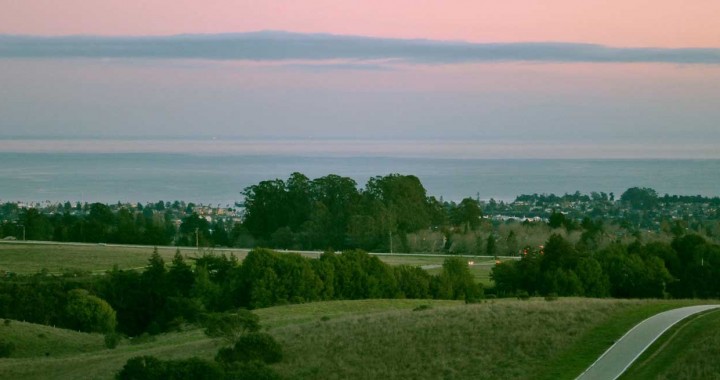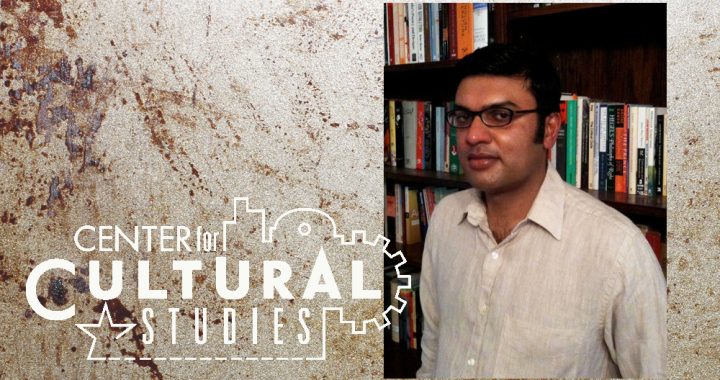* To advertise your unit or department’s event in the “Of Interest” section of this weekly bulletin, please e-mail complete event information in text format (no PDFs) to cult@ucsc.edu no later than noon on Friday of the prior week.
* Additional information and regular updates on many “Of Interest” events can be found on the IHR website.
OF-INTEREST EVENT DESCRIPTIONS:
Wednesday & Thursday, Feb 18-19 / CENTER FOR JEWISH STUDIES / “Liminal Spaces and the Jewish Imagination Conference” / Humanities 1, Room 210
The Venice Ghetto serves as the starting point from which we address questions of modern Jewish spaces—a site that has played a central role in Jewish and European culture since the Jews were sequestered in the Ghetto at its founding in 1516. Contemporary globalization brings into focus the relationship between identity and spatial location, and highlights new and cross-cutting transnational allegiances.
(top)
Wednesday, Feb 18 / HISTORY DEPARTMENT / Manu Bhagavan / “Toward Universal Relief and Rehabilitation: India, UNRRA, and the New Internationalism” / 2:00-4:00pm / Humanities 1, Room 520
“India” had been involved in the United Nations even in its wartime incarnation, inasmuch as the Crown Government of the colonized region brought the territory into the Second World War and, in turn, voted to support various institutions created to deal with the challenges wrought by the conflict. Among the most prominent of these was the United Nations Relief and Rehabilitation Agency (UNRRA), the mission of which was to aid countries negatively impacted by the military campaigns. The British Government of India strongly signaled its support even as the subcontinent weathered the effects of one the worst famines ever encountered in the region. UNRRA was based in the United States and led by several men who considered themselves friends of India, most notably famed New Yorkers Herbert Lehman and Fiorello LaGuardia. Over the next several years, UNRRA pushed to create an Indian office and to incorporate Indians into administration based in the US, in a good faith effort to circumvent charges of imperial complicity. So the agency leadership was especially surprised when they ran into resistance from India’s anti-colonial icons. UNRRA was too blind to the pernicious stranglehold of imperialism the Indians believed, and so had to be challenged, even as it was admired. The encounter thus exemplifies colonial India’s efforts to challenge and undo Great Power/Global North/Western control of UN bureaucracies from the outset, and to reset both the tone and the substance of international relations by insisting on shared responsibilities and mutual respect.
Manu Bhagavan is the Chair of the Human Rights Program at the Roosevelt House Public Policy Institute and a Professor of History at Hunter College and the Graduate Center at the City University of New York. He is a specialist on modern India, focusing on the twentieth-century late-colonial and post-colonial periods, with particular interests in human rights, (inter)nationalism, and questions of sovereignty. His most recent publication is The Peacemakers: India and the Quest for One World (Harper Collins, 2012).
(top)
Wednesday, Feb 18 / VISUAL AND MEDIA CULTURES COLLOQUIA / Karen Barad / “Histories of Now: ‘Time Diffractions, Virtuality, and Material Imaginings’” / 4:00-6:00pm / Porter College, Room D245
Refreshments will be available 30 minutes before the talk.
Karen Barad is Professor of Feminist Studies, Philosophy, and History of Consciousness at the University of California at Santa Cruz. Barad’s Ph.D. is in theoretical particle physics and quantum field theory. Barad held a tenured appointment in a physics department before moving into more interdisciplinary spaces. Barad is the author of Meeting the Universe Halfway: Quantum Physics and the Entanglement of Matter and Meaning (Duke University Press, 2007) and numerous articles in the fields of physics, philosophy, science studies, poststructuralist theory, and feminist theory. Barad’s research has been supported by the National Science Foundation, the Ford Foundation, the Hughes Foundation, the Irvine Foundation, the Mellon Foundation, and the National Endowment for the Humanities. Barad is the Co-Director of the Science & Justice Graduate Training Program at UCSC.
(top)
Wednesday, Feb 18 / FILM + DIGITAL MEDIA WEDNESDAY NIGHT CINEMA / “Videograms of a Revolution” / 7:00pm / Studio C (Communications 150)
In Europe in the fall of 1989, history took place before our very eyes. Farocki’s and Andrei Ujica’s Videograms shows the Romanian revolution of December 1989 in Bucharest in a new media-based form of historiography. Demonstrators occupied the television station in Bucharest and broadcast continuously for 120 hours, thereby establishing the television studio as a new historical site. Between December 21, 1989 (the day of Ceaucescu’s last speech) and December 26, 1989 (the first televised summary of his trial), the cameras recorded events at the most important locations in Bucharest, almost without exception. The determining medium of an era has always marked history, quite unambiguously so in that of modern Europe. As we know, the 20th century is filmic. But only the videocamera, with its heightened possibilities in terms of recording time and mobility, can bring the process of filming history to completion. Provided, of course, that there is history.
(top)
Thursday, Feb 19 / LIVING WRITERS SERIES / John Jota Leaños / 6:00-7:45pm / Humanities Lecture Hall, Room 206
John Jota Leaños is an award-winning Chicano new media artist using animation, documentary and performance focusing on the convergence of memory, social space and decolonization. Leaños’ animation work has been shown internationally at festivals and museums including the Sundance Film Festival, the Morelia International Film Festival, Mexico, San Francisco International Festival of Animation, the KOS Convention ’07, and the Museum of Contemporary Art, San Diego. Leaños has also exhibited at the 2002 and 2008 Whitney Biennial in New York, the San Francisco Museum of Modern Art, Museum of Contemporary Art in Los Angeles, and Massachusetts Institute of Technology.
Leaños is a Guggenheim Fellow in Film (2012), Creative Capital Foundation Grantee and has been an artist in residence at the University of California, Santa Barbara in the Center for Chicano Studies, Carnegie Mellon University in the Center for Arts in Society, and the Headlands Center for the Arts. Leaños is currently an Associate Professor of Social Documentary at the University of California, Santa Cruz.
(top)
Friday, Feb 20 / CRITICAL RACE AND ETHNIC STUDIES / Steven Salaita / Seminar: “Inter/Nationalism from the New World to the Holy Land: Encountering Palestine in American Indian Studies” / 10:00am-12:00pm / Humanities 1, Room 210
Dr. Steven Salaita is the author of six books, including Israel’s Dead Soul, Modern Arab American Fiction: A Reader’s Guide, The Holy Land in Transit: Colonialism and the Quest for Canaan, and Anti-Arab Racism in the USA: Where it Comes From and What it Means for Politics.
For pre-circulated readings and to RSVP, please Contact Juliana Bruno (JulianaB@ucsc.edu). Co-Sponsored by the Center for the Study of Labor, the IHR Cultures in the Crisis of Capitalism Research Cluster, Students for Justice in Palestine, UAW 2865, the Santa Cruz Resource Center for Non-Violence, and the Palestine-Israel Action Committee.
(top)
Friday, Feb 20 / FRIDAY FORUM FOR GRADUATE RESEARCH / Melissa Yinger / “Ronsard’s Echo-critical Poetic Narcissism: The Elegies for Narcissus and Gâtine” / 12:00-1:30pm / Humanities 1, Room 202
Our current critical moment bears an ambivalent relationship to Renaissance humanism. On the one hand, we associate it with great art – Botticelli, Michelangelo, Petrarch – and on the other hand, we associate it with anthropocentrism and narcissism. But popular notions of narcissism threaten to obscure what Renaissance humanists found so appealing in Narcissus’s story and its accompanying aesthetic, an aesthetic that finds beauty in sameness. For this talk, I turn to the poetry of Pierre de Ronsard and examine his development of the formal features of this aesthetic in his elegy for Narcissus. Narcissus, of course, is only half of the story, however, and while Ronsard’s Narcissus elegy lays bare a particular cultural construction of beauty, his engagement with Echo’s story in a later poem, “Contre les bûcherons” (“Against the woodcutters”), bespeaks his anxieties about what that construction entails. His uneasiness, which bears a proleptic relationship to our own uneasiness about humanism, manifests itself as a nascent form of ecocriticism that is tethered to a narcissistic speaker; I call it Echo-criticism.
Melissa Yinger is a doctoral candidate in the department of literature. Her work focuses on lyric poetry of the Italian, French, and English Renaissance, and the works of William Shakespeare. She recently co-wrote an essay with Michael Ursell called “Shakespeare’s Books,” for The Ashgate Research Companion to Shakespeare and Classical Literature (forthcoming in 2016). For Friday Forum, Melissa will be presenting on the importance of Ovid’s Narcissus and Echo myth to the development of Renaissance humanism and poetics, as focalized through two poems by Pierre de Ronsard.
The Friday Forum is a graduate-run colloquium dedicated to the presentation and discussion of graduate student research. The series will be held weekly from 12:00 to 1:30PM and will serve as a venue for graduate students in the Humanities, Social Sciences, and Arts divisions to share and develop their research. Light refreshments will be available.
For more info, or to inquire about joining the roster of presenters for Spring quarter contact: fridayforum.ucsc@gmail.com
(top)
Friday, Feb 20 / CRITICAL RACE AND ETHNIC STUDIES / Steven Salaita / Public Talk, “Silencing Dissent: Palestine, Academic Freedom, and the New McCarthyism” / 2:00-4:00pm / Humanities I, Room 210
Dr. Steven Salaita is the author of six books, including Israel’s Dead Soul, Modern Arab American Fiction: A Reader’s Guide, The Holy Land in Transit: Colonialism and the Quest for Canaan, and Anti-Arab Racism in the USA: Where it Comes From and What it Means for Politics.
Co-sponsored by the Center for the Study of Labor, the IHR Cultures in the Crisis of Capitalism Research Cluster, Students for Justice in Palestine, UAW 2865, the Santa Cruz Resource Center for Non-Violence, and the Palestine-Israel Action Committee.
(top)






